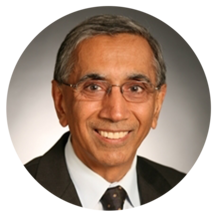About this Presentation
Starting in the 1960’s the emphasis in project management shifted to taking advantage of computers to improve project management. There were many contributors, such as John Fondahl at Stanford University, developing the algorithms that were to become the foundation for the project management software tools that are prevalent today. These tools offered new features to plan, schedule and execute, however, the thinking captured in the algorithms for the most part were not new. And in fact remain essentially unchanged, focusing on new features and capabilities. It wasn’t until 1997 when Eliyahu Goldratt published the book, Critical Chain, introducing the critical chain methodology as an alternative to the critical path methodology did we have the next major change in project management thinking. There are many adaptors to this way of thinking. Regrettably change as we have seen comes slowly and it will take additional time before the full impact of critical chain methodology is totally understood across the project management community. So the pattern has been established. We first see new thinking evolve and then tools developed building on these advances, producing powerful breakthrough solutions. With Gantt, critical path and PERT they used the technology available, initially paper charts and graphs, evolving into software solutions. When critical chain appeared the solutions developed immediately leveraged the existent availability and capabilities of computers and software. Improvements using critical chain thinking without software could be achieved, however they cannot benefit from the wide and far-reaching disruptive technology that was now available. We must now break the pattern. I believe the next breakthrough will require challenging our own assumptions to push the envelope of current critical chain thinking. We must leverage the significant advances in computing power; advanced software technology and means of delivery in order to have new thinking evolve. This very well may be creating new knowledge … you will be the judge. Video length: 1:01:24. PDF: 26 slides.
What Will You Learn
To help you get the most value from this session, we’ve highlighted a few key points. These takeaways capture the main ideas and practical insights from the presentation, making it easier for you to review, reflect, and apply what you’ve learned.

CCPM started off as a single project solution and has evolved into a multi-project solution and an enterprise project portfolio management tool.
CCPM requires a shift in paradigms and the use of specific software for planning, scheduling, and executing.
CCPM can be used in non-traditional project management environments like healthcare, engineering to order, and manufacturer to order.
Instructor(s)
Jennifer Eckman

Ms Alka Wadhwa
Alka Wadhwa is an experienced consultant and process improvement expert with over 24 years of expertise in the Theory of Constraints (TOC), Lean Six Sigma, and organizational performance optimization. She has successfully led projects in healthcare, financial services, and manufacturing, driving significant improvements such as a 67% boost in hospital operations and a 140% increase in outpatient visits.
Previously, Alka Wadhwa spent 17+ years at GE Global Research Center, where she led initiatives to enhance various GE businesses through advanced technologies, process redesign, and system optimization. Founder of Better Solutions Consulting, LLC, she specializes in using TOC, Six Sigma, and data analytics to streamline operations and build high-performance teams.
Her work has earned her multiple accolades, including the Empire State Award of Excellence in healthcare.

Dr Gary Wadhwa
Dr. Gary Wadhwa is a Board Certified Oral & Maxillofacial Surgeon with extensive experience in the field. He completed his Oral & Maxillofacial Surgery training at Montefiore Hospital, Albert Einstein College of Medicine in Bronx, NY, and has served as an Attending at prestigious institutions like St. Peters Hospitals, Ellis Hospital, and Beth Israel Hospital in NY. With a career spanning over two decades, he was the former CEO and President of a group specialty practice in NY from 1994 to 2015. Dr. Wadhwa holds an MBA from UT at Knoxville, TN, and has undergone additional training in System Dynamics at MIT, Health System Management at Harvard Business School, and Entrepreneurship and healthcare innovations at Columbia Business School. Committed to expanding access to Oral & Maxillofacial Surgery care, he is currently engaged in a meaningful project to provide healthcare services to underserved populations in inner city and rural areas through non-profit Community Health Centers.
